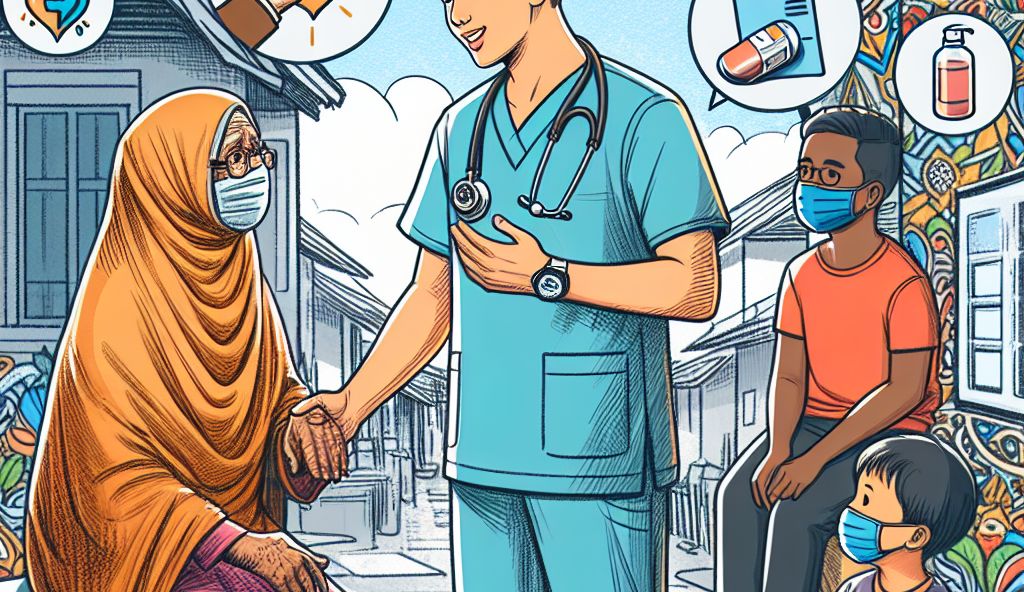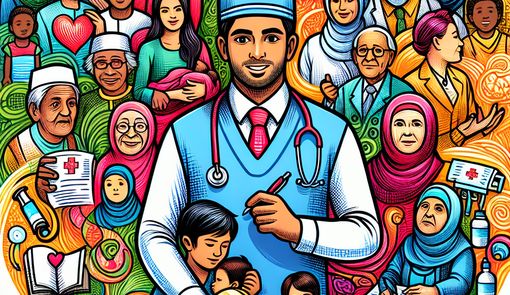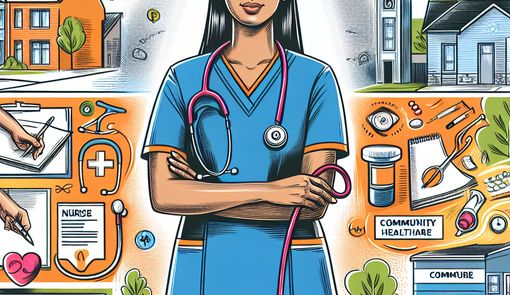Key Skills for Success as a Community Health Nurse

Community health nursing is a vital field that plays a crucial role in promoting and maintaining the health of populations. Nurses in this discipline work closely with individuals, families, and communities to identify and mitigate health risks, provide education and counseling, and enhance access to care. In this capacity, community health nurses must possess a unique set of skills to effectively serve diverse populations and succeed in the multifaceted environments they operate within. This article will explore the essential skills that set apart successful community health nurses in the field.
Clinical Expertise
First and foremost, community health nurses must have a strong foundation in nursing practice and clinical knowledge. They must be proficient in a wide range of nursing procedures and able to assess, plan, implement, and evaluate care for individuals and groups. Knowledge of public health principles and the social determinants of health is also essential, as community health nurses often address issues that range from infectious diseases to chronic conditions that disproportionately affect certain populations.
Cultural Competence
Effective community health nursing requires cultural competence, which involves understanding and respecting diversity in beliefs, values, and customs. Nurses must be able to communicate effectively with people from different cultural backgrounds and tailor their approaches to meet patients' cultural needs. This enables them to build trust and rapport with community members, which is crucial for successful interventions.
Health Education and Promotion
Community health nurses play a key role in health education and promotion. They need to be skilled in teaching and communication to effectively impart health information and inspire behavior change. These skills are vital for conducting health campaigns, organizing community workshops, and providing one-on-one counseling to patients.
Advocacy
Advocacy is an integral part of community health nursing, requiring nurses to be able to speak up for the rights and needs of patients, particularly those who are marginalized or at a disadvantage. They must understand health policy, know the healthcare system, and be able to navigate it to obtain the best outcomes for their patients.
Critical Thinking and Problem-Solving
Community health nurses often have to make decisions in complex situations that involve many factors. They must be able to think critically to analyze information accurately and solve problems effectively. This skill is important for assessing community needs, creating health programs, and evaluating their impact.
Adaptability and Flexibility
Given the dynamic nature of community health, nurses must be adaptable and flexible. They need to be comfortable with change and able to modify their plans as situations evolve. This might mean adjusting health interventions on the fly or revising educational materials to reflect new health guidelines.
Interpersonal and Communication Skills
Strong interpersonal and communication skills are paramount for community health nurses. They must be able to engage with community members, colleagues, and other stakeholders to foster collaborative relationships. Effective communication is also key in educating patients, advocating for community health, and reporting outcomes.
Leadership and Teamwork
Effective leadership and teamwork are critical in community health nursing. Nurses often lead projects and should be able to inspire and guide colleagues and volunteers. They must also work as part of a team, contributing to and enhancing the team's objectives and providing support when necessary.
Technological Proficiency
In today's healthcare environment, technological proficiency is increasingly important. Community health nurses should be comfortable using electronic health records, telehealth platforms, and data analysis tools that aid in tracking and improving community health outcomes.
Emotional Resilience
Lastly, community health nurses often face emotionally challenging situations. Emotional resilience is key to maintaining personal well-being while providing compassionate care. The ability to manage stress and bounce back from difficult encounters is vital for long-term success in the field.
Conclusion
Community health nursing is a rewarding yet challenging career that demands a special set of skills for success. Those who possess clinical expertise, cultural competence, a knack for education and advocacy, critical thinking, adaptability, strong communication, leadership abilities, technological proficiency, and emotional resilience are best equipped to excel in this noble profession. Training and continuous education can develop these skills further, ensuring that community health nurses not only contribute significantly to the health of communities but also achieve personal and professional fulfillment.
Frequently Asked Questions
1. What qualifications are required to become a community health nurse?
To become a community health nurse, you typically need a Bachelor of Science in Nursing (BSN) degree. Some positions may require a Master of Science in Nursing (MSN) or a related field. Additionally, certifications in public health nursing or community health nursing are beneficial for advancing in this career.
2. What settings do community health nurses work in?
Community health nurses can work in a variety of settings, including community health centers, public health departments, schools, non-profit organizations, and home health agencies. They may also work in urban or rural areas, serving diverse populations with varying health needs.
3. How do community health nurses contribute to community well-being?
Community health nurses contribute to community well-being by assessing health needs, developing and implementing health programs, providing health education, promoting preventive care, advocating for public health policies, and collaborating with community stakeholders to improve health outcomes.
4. What are the common challenges faced by community health nurses?
Common challenges faced by community health nurses include limited resources, cultural barriers, language differences, resistance to health education, addressing social determinants of health, navigating complex healthcare systems, and maintaining work-life balance due to the emotional demands of the job.
5. How can aspiring community health nurses develop their skills?
Aspiring community health nurses can develop their skills by pursuing relevant education and training, seeking mentorship from experienced professionals, gaining hands-on experience through internships or volunteer work, participating in continued education programs, staying updated on public health trends, and cultivating traits like empathy, resilience, and cultural sensitivity.
Further Resources
For those interested in further exploring the key skills required for success as a community health nurse, here are some valuable resources to enhance your knowledge and proficiency in this field:
- American Public Health Association (APHA) - The APHA offers a variety of resources, webinars, and publications focusing on community health nursing and public health advocacy. Visit their website here.
- National Association of Community Health Centers (NACHC) - NACHC provides resources and training opportunities for community health nurses working in community health centers. Check out their resources here.
- Centers for Disease Control and Prevention (CDC) - The CDC's website offers a wealth of information on public health, infectious diseases, and health promotion strategies relevant to community health nursing. Explore their resources here.
- Community Tool Box - This online resource provides practical guidance on community health education, advocacy, and program development. Access the Community Tool Box here.
- National Institutes of Health (NIH) - Office of Behavioral and Social Sciences Research - The NIH provides research and resources on behavioral and social aspects of health, which are crucial for community health nurses. Visit their website here.
- Agency for Healthcare Research and Quality (AHRQ) - AHRQ offers tools and resources for improving healthcare quality and safety, valuable for community health nurses striving for better health outcomes. Explore their resources here.
- Community Health Nursing: Caring in Action by Karen Saucier Lundy and Sharyn Janes - This comprehensive book delves into the practical aspects of community health nursing, highlighting key skills and strategies for success. Find the book here.
- Journal of Community Health Nursing - This journal publishes research and articles on various topics in community health nursing, offering insights and developments in the field. Access the journal here.
- Community Health Nursing Certification Exam - For those looking to validate their expertise in community health nursing, pursuing certification through organizations like the American Nurses Credentialing Center (ANCC) can enhance professional credentials. Learn more about certification here.
- Community Health Nursing Conferences and Workshops - Participating in conferences and workshops focused on community health nursing can provide networking opportunities, skill development, and exposure to current trends in the field. Stay updated on upcoming events through platforms like Nursing Conferences.
These resources offer a wealth of information and support for community health nurses looking to excel in their roles and make a positive impact on the health and well-being of communities they serve.






